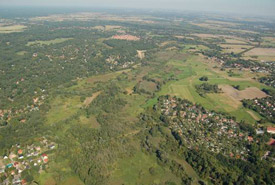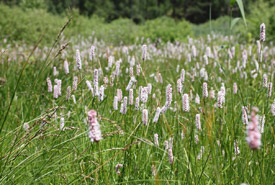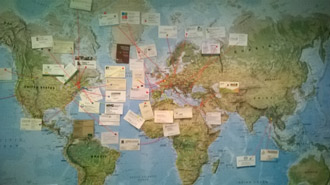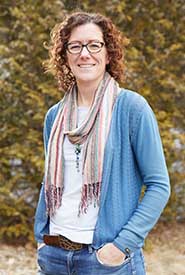Reports from the First Congress of the International Land Conservation Network

The Eichwerder and the surrounding wetlands are located north of the city of Berlin. The Berlin Wall used to be in this area until 1990. (Photo by Holger Rößling/NaturSchutzFonds Brandenburg)
Two weeks ago (Oct. 19 – 21) I had the privilege to attend the First Congress of the International Land Conservation Network (ILCN) hosted in Berlin, Germany. The purpose of this congress is to connect organizations and people around the world that are accelerating voluntary private and civic sector action that protects and stewards land and water resources.
It was so inspiring to meet people from 27 countries around the world; to hear their ideas and to learn about the challenges and opportunities they face. Engaging with these peopled highlighted for me how Canada’s conservation experience and expertise can help other countries in their efforts to protect land and water and, in equal part, how much more there is for us to learn about private land conservation.

The flowers of bistort (Polygonum bistorta). (Photo by NaturSchutzFonds)
On the first day, we visited Eichwerder moor lands, located at the northern border of Berlin.
The area is one of the most important alkaline fens in the region. Part of the property had been divided by the Berlin Wall and in those intervening years it was abandoned, drained and degraded. The site is now being restored and managed by a charitable foundation owned by the federal state of Brandenburg.

A map with the business cards from the home-countries of the delegates. (Photo by NCC)
Day two was when we really got to see the work of others and showcase our own at the open session. The presentations explored financial, legal and organizational strategies that facilitate the creation and stewardship of privately protected lands across a range of geographies and settings. In some cases the country’s context was comparable to that of Canada, such as Australia and the U.S., but in other cases, such as Myanmar and South Africa, the legislative, social and economic conditions set a whole different approach to land protection.
John Lounds, the Nature Conservancy of Canada’s (NCC’s) president and CEO, and I were among the speakers in three presentations including:
- A Tale of Two Countries: Private land conservation in North America. Lisa McLaughlin, Stefan Nagel, Henry Tepper and Karen Cooper.
- Opportunities and constraints: conservation easements and servitudes in civil code jurisdictions – Canada, Chile, Finland and Spain. Lisa McLaughlin, Roberto Peralta, Hernan Collado and Erika Tapio.
- Giving money and giving time: philanthropy and volunteers. John Lounds, Noah Janssen and Lilliana Jauregul.
Needless to say, we met many innovators, experts and practitioners who brought their background and experience to the congress, and it was an exciting conference for us all.


